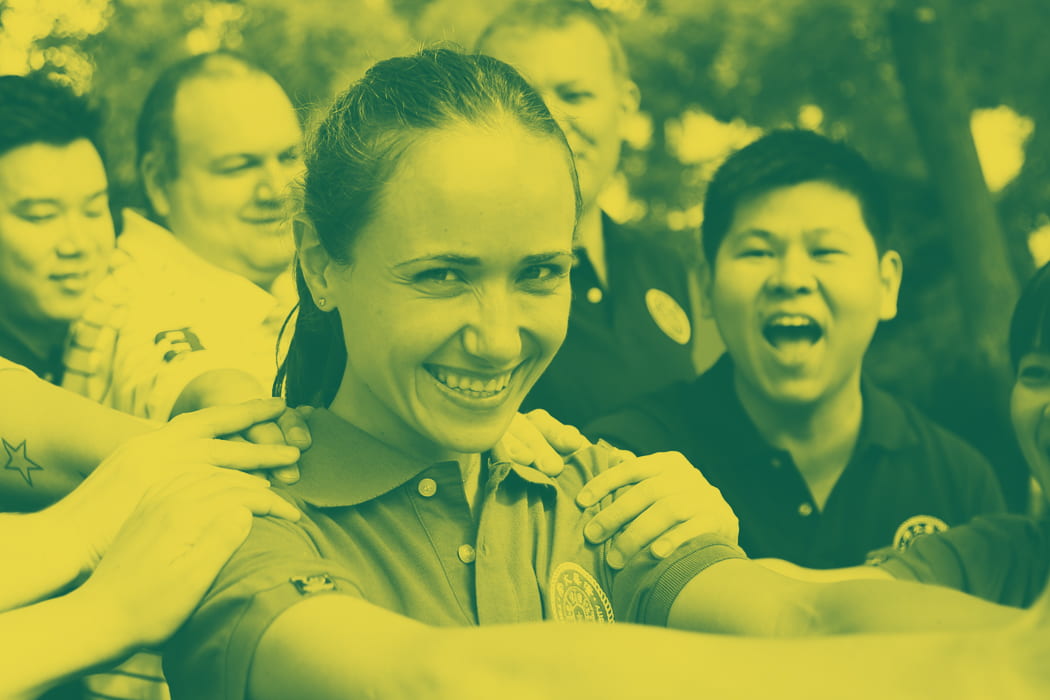
Built on the principles of academic rigour and innovation, the INSEAD Gender Initiative is pioneering a new approach to enable gender balance.
In the global workplace, the fight for gender balance isn’t over. Women still earn significantly less than men across all industries. Only about one-half of working-age women globally are employed. And women are still dramatically underrepresented in the C-suite.
The question is: How do businesses—and business schools—begin to tackle a problem as pervasive as this?
INSEAD is proposing an answer with the Gender Initiative, an initiative dedicated to creating activities and opportunities that promote gender inclusion, engage the full potential of women leaders in business, and integrate both men and women in the effort. Its core activities are grounded in the latest research on gender imbalance and interventions that effectively enable balance.
“We’re striving to be innovative and experimental in how we approach this,” explains Zoe Kinias, Associate Professor of Organisational Behaviour, who became Director of the Gender Initiative last spring. “We want to be rigorous in our investigations but also be open to trying new things.”
To that end, the Gender Initiative has established an ambitious strategic vision that seeks to promote gender balance in four specific areas: INSEAD’s institutional practices, pedagogical programmes, alumni relationships and business partnerships.
“At INSEAD we see business as a force to improve peoples’ lives,” says Kinias. “We aim to be a model for great gender balance, leveraging our strong research base, our innovative teaching approaches and our deeply diverse community to provide businesses everywhere with what they need to address gender balance across all cultures.”
Treating the cause, not the symptoms
Like any good physician, the Gender Initiative is focused on addressing the root causes of gender imbalance as opposed to treating its symptoms. Research indicates that these causes include mental models and social systems that reinforce undermining messages about the role of women in business, notes Kinias.
“Research suggests that part of the challenge for women—with respect to leadership in various forms—is that our mental models of leadership are more aligned with men and masculinity than women and femininity,” she explains.
Pedagogical materials, along with the systems in which we live and work, reinforce those models, she continues. “The status quo reinforces itself and will continue to do so unless we actively work to create a more gender-balanced future.”
“To move forward, we have to think about how to influence the mental models, and how to modify the system that reinforces those mental models.”
Indeed, that thinking drives everything that the Gender Initiative does.
Shifting mind-sets and the status quo
To change mental models, you have to establish new ones. To that end, INSEAD and the Gender Initiative are creating and disseminating new models for women across different platforms.
In 2017, INSEAD launched Limitless, a campaign that profiles highly accomplished alumnae who have overcome social, economic or political constraints and achieved tremendous success in their careers. INSEAD is also promoting the accomplishments of INSEAD women through other avenues, including featuring esteemed alumnae speakers at key academic events, spotlighting the research of female faculty members on the research division of the Gender Initiative website, and spreading the word about alumnae and male champions profiled in Salamander magazine and INSEAD Knowledge.
The Gender Initiative is also working with deans and faculty to increase gender balance across pedagogic materials. They have begun to track the quantity and quality of women’s representation in several ways, and are encouraging development along these lines.
More broadly, the iW50 celebration, which marks the 50th anniversary of the first women to enrol in INSEAD’s MBA programme, is using a variety of events and forums to bring attention to women leaders from INSEAD. Through this year-long celebration, INSEAD aims to honour women from the school’s past, present and future, and bring awareness to the work that still needs to be done to achieve gender balance.
To better understand how alumni experience and contribute to social issues, Kinias led a large-scale alumni impact survey in 2017 that she says demonstrates the positive reach of alumni.
“Over 90% of the 5,715 survey participants expressed interest in more gender-balanced business leadership, and 67% of male graduates and 73% of female graduates reported that they advocate on behalf of women.”
“When we think about the combined impact of our alumni, who serve as global business leaders in C-suites and on boards, and what they are already doing, INSEAD can be proud,” says Kinias. “But we still have more to do along these lines. Ensuring that everyone knows what they can do as individuals and as part of a community is at the heart of our work going forward.”
Leading evidence-based interventions
The Gender Initiative is also implementing evidence-based interventions at INSEAD that address gender balance issues more directly.
Recognising that men can play a particularly influential role in enabling gender balance, the Gender Initiative is creating opportunities to engage more male faculty members and students in gender balance activities. For example, it is developing a new Gender Issues Awareness module for an upcoming faculty retreat and supporting the launch of a student-led “Manbassador” programme on all three campuses. The Gender Initiative is also conducting research to better understand why some men are more motivated to support gender balance and champion gender diversity. The new research shows that recognising inequity is a critical first step for men, and then identifying themselves as social impact leaders further motivates them to take action.
Looking ahead, Kinias says, the Gender Initiative wants to find new and different ways to work with alumni—on an individual level and a community level—to promote gender balance beyond the walls of the school. “We have more than 55,000 alumni, and they’re powerful and all around the world,” says Kinias. “I get excited when I think about our potential to develop gender balance through our core community.”
All of these activities ladder up to INSEAD’s mission of using business as a force for good.
“Having more gender balanced practices creates opportunities in which women can thrive and reach their full potential,” says Kinias.


